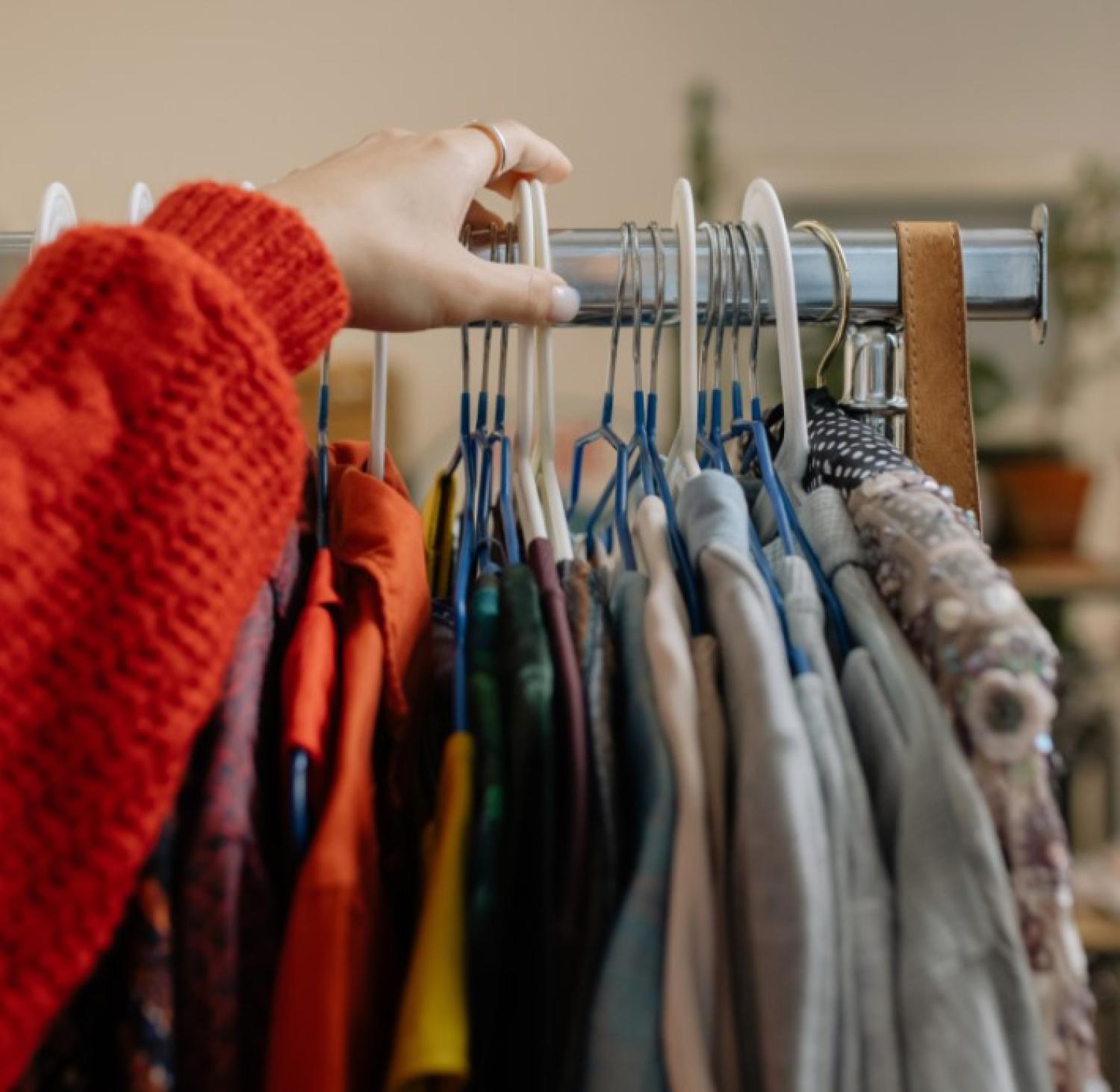How fast fashion impacts sustainability

Did you know that your fashion choices can positively impact the environment? When you choose clothes made with recycled fabrics, you can help save water and lower carbon emissions. Other actions, like buying second-hand and repairing clothing items, also help promote sustainability. To learn more and track your impact, download the AWorld app.
Do your part for sustainable fashion
It feels good to get a new item and show off your style but consider where the clothing comes from before you buy. In the current age of limitless information at our fingertips, it takes just a few minutes to research the source of your clothes. Thinking about sustainability when buying clothes helps reduce the number of harmful pieces produced and ensures you get a high-quality and long-lasting product.
Fast fashion is a large-scale issue spreading worldwide across multiple billion-dollar companies. As scary as it sounds, consumers can impact the market. Many companies have started listening and changing their ways. Businesses like Zara and H&M have committed to sourcing their products only from recycled materials and have started integrating that into their newer pieces. While a step in the right direction, how we spend our money can encourage other companies to follow suit. Fighting with your wallet is one of the most impactful ways to make a company listen. Educate yourself on what's going on behind the scenes to help you make informed decisions.
It's essential to be conscious about where your clothes come from. Still, for the benefit of the environment, it’s even more important to ask yourself whether you really need an item before you make a purchase.
Tips to practice sustainable fashion
- Invest in durable clothing that will last longer.
- When possible, buy from sustainable brands and B corps.
- Research slow fashion brands that incorporate mindful clothing production.
- Instead of throwing clothing away, trade, sell or donate items.
- Have a clothing swap with your friends to refresh your closet for free.
- Sell your clothes at consignment shops for cash or store credit.
- Sell clothing online.
- Donate clothes to a local thrift store and shop at thrift stores. Learn the benefits of thrifting.
- Repair damaged clothing instead of throwing it out. Check out YouTube channels for tutorials.
- Repurpose items, like using an old piece of clothing for a costume. Old T-shirts make great cleaning cloths and dusters.
- Have fun and get creative!
What is fast fashion?
Fast fashion designs, creates and markets clothing to make fashion trends quickly and cheaply available to consumers. This isn't a new concept. From a business perspective, it fits the goal of creating supply to match the changing demand. Social media and increased online presence have caused the issue of fast fashion to grow. With fashion trends spreading sporadically and fizzling out of the spotlight in a matter of weeks, the supply has to follow these sudden waves of demand. This has led some companies to make large amounts of a product very cheaply and unsustainably.
Fast fashion in action
This issue stretches over the entire fashion industry, with many companies to blame for their unsustainable practices, including the popular fast fashion brands Shein and PrettyLittleThing. One common mission for lower-end, high-volume clothing companies is to make higher-end fashion accessible and affordable for everyone. At face value, the concept sounds great until you look at how companies operate.
To cut costs and make their pieces more affordable and current, these companies often produce more than is possible to be sustainable. The goal is to produce as much as possible at a very low cost. This model has led to reports of low wages for workers and other negative impacts.
While Shein is one example of how fast fashion runs, it's not the sole perpetrator of pollution released from the production of clothes. Most big brands have to follow a similar model to meet the constant demand for new clothes.
We can help break this wasteful cycle by incorporating sustainable practices into our buying decisions and investing in durable clothing from trusted brands.
Facts About Textile Waste from the Council for Textile Recycling
- Textile waste accounts for 5% of landfill space, according to the U.S. EPA.
- The U.S. generates an average of 25 billion pounds of textiles annually, or around 82 pounds per U.S. resident.
- Only 15% of that gets donated or recycled; the remaining 85 percent goes to landfills, with 21 billion pounds of textile waste going to landfills annually.
- The average U.S. citizen throws away 70 pounds of textiles.
- These numbers are growing exponentially.


